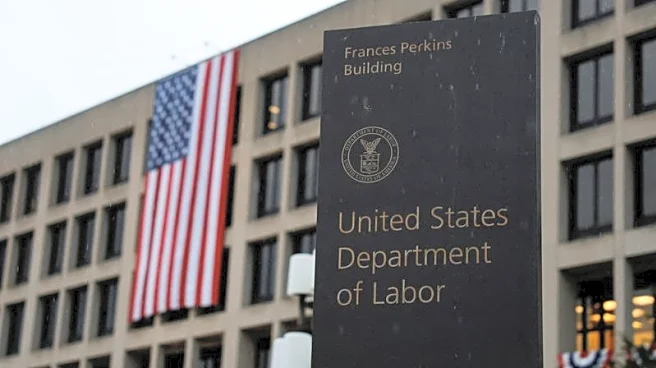What's Happening?
President Trump has signed an executive order granting Qatar a NATO-style security guarantee, committing the United States to defend Qatar against foreign aggression. This decision follows Israeli missile strikes on September 9 targeting Hamas leaders in Doha, which resulted in the death of six individuals, including a Qatari security official. The order emphasizes the U.S. commitment to Qatar's security and territorial integrity, stating that any attack on Qatar will be considered a threat to U.S. peace and security. The order also mandates joint contingency planning between the U.S. and Qatar to ensure a coordinated response to any aggression. This move comes after a trilateral phone call facilitated by President Trump between Israeli Prime Minister Benjamin Netanyahu and Qatari Prime Minister Mohammed bin Abdulrahman bin Jassim Al Thani, during which Netanyahu expressed regret over the strikes and assured that such actions would not be repeated.
Why It's Important?
The security guarantee to Qatar marks a significant shift in U.S. foreign policy, potentially altering the dynamics in the Middle East. By extending a NATO-style guarantee, the U.S. is reinforcing its strategic alliance with Qatar, a key player in regional diplomacy and conflict mediation. This move could enhance Qatar's security posture and influence in the region, while also potentially deterring future aggression from neighboring states. The decision may also impact U.S.-Israel relations, as it follows controversial Israeli military actions. Economically, the U.S. has secured over $243.5 billion in deals with Qatar, highlighting the importance of maintaining strong bilateral ties. The guarantee could also influence other Gulf states' perceptions of U.S. commitment to regional security.
What's Next?
The executive order sets the stage for increased military and diplomatic collaboration between the U.S. and Qatar. It is likely to prompt discussions among other Gulf Cooperation Council members regarding their security arrangements with the U.S. and may lead to similar agreements. The U.S. and Qatar will engage in joint contingency planning to prepare for potential threats, which could involve military exercises and strategic dialogues. The assurance from Israel to avoid future strikes may lead to improved relations between Israel and Qatar, potentially facilitating further diplomatic engagements. Observers will be watching for reactions from other regional powers, such as Iran and Saudi Arabia, which may view the U.S. guarantee as a shift in the balance of power.
Beyond the Headlines
The security guarantee to Qatar raises questions about the U.S.'s long-term strategic interests in the Middle East. It underscores the importance of Qatar as a mediator in regional conflicts and a partner in counterterrorism efforts. The move may also reflect a broader U.S. strategy to stabilize the region by strengthening alliances with key states. However, it could also lead to increased tensions with countries opposed to U.S. influence in the Gulf. The decision highlights the complex interplay of military, economic, and diplomatic factors shaping U.S. foreign policy in the region.











